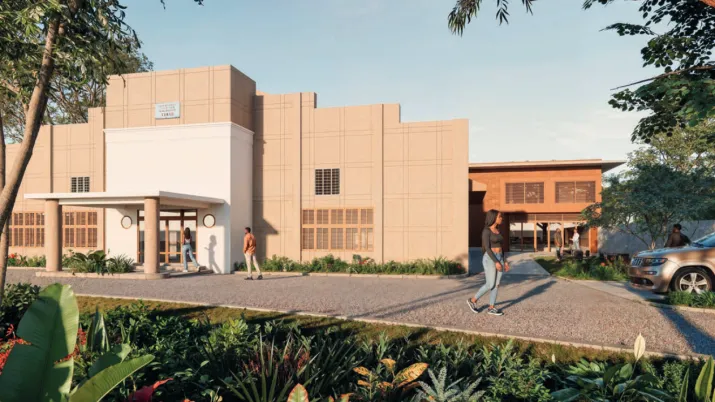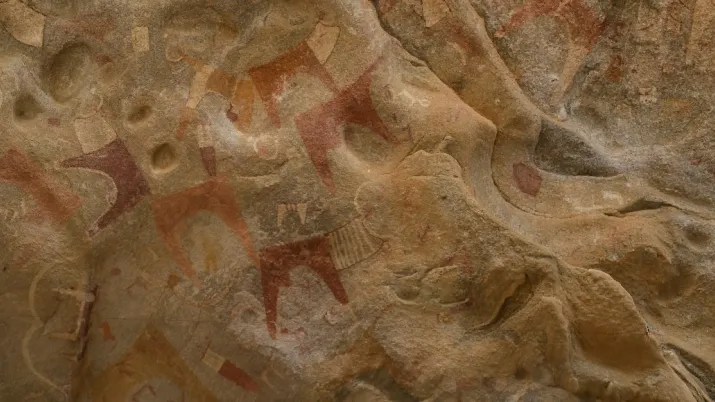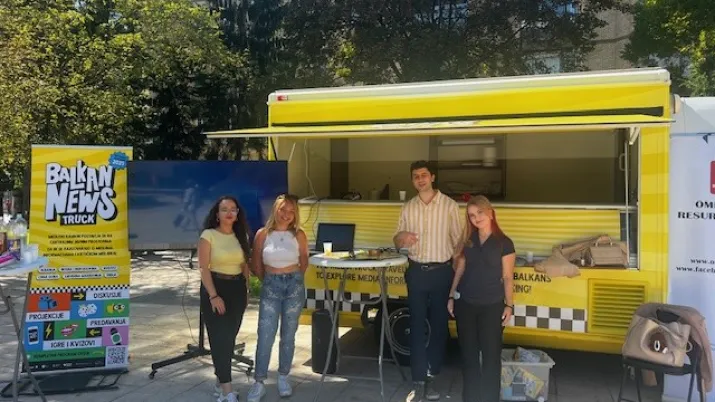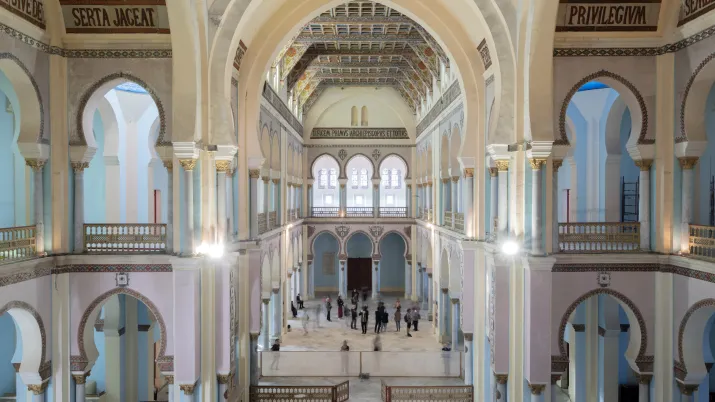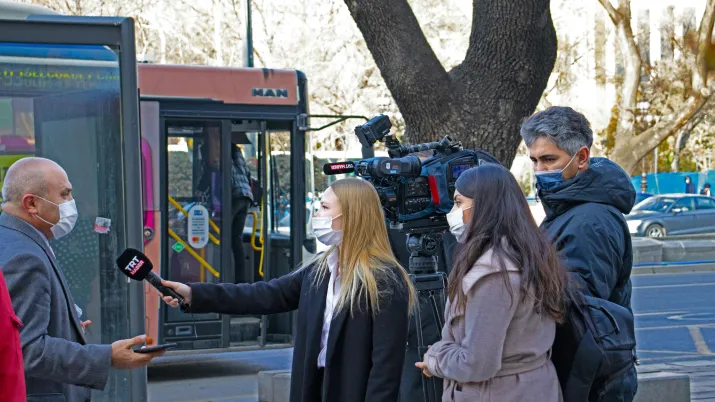Share the page
Fostering inclusion and the sustainability of the economy - Our work and impact
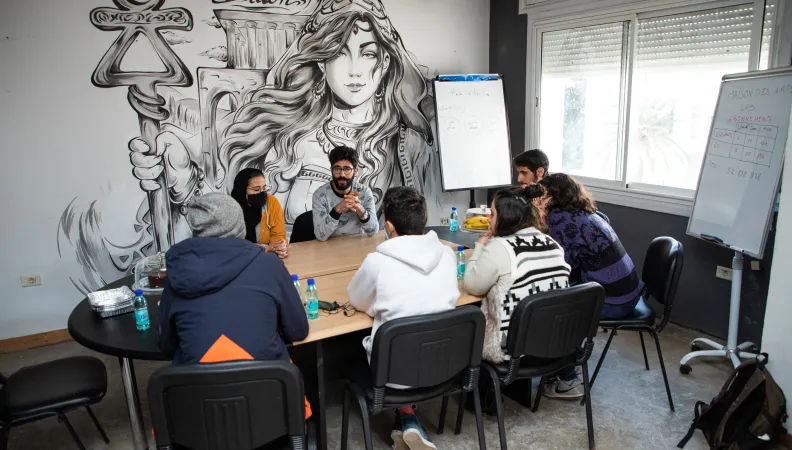
As France’s development cooperation agency, our ambition is to contribute to an inclusive, sustainable economy, fight poverty, and promote prosperity for the most vulnerable populations in our partner countries. To do this, we address a broad range of issues, working at the request and with the input of our partner countries.
Our action in support of economic sustainability encompasses trade facilitation, entrepreneurship and innovation, as well as culture, heritage, and sports – all powerful drivers of an environmentally sustainable economy and national sovereignty that are essential for the success of our partners’ public policies.
The projects we implement consistently generate tangible, measurable results. In 2024, for example, 143 organisations received support in business development, 3,274 businesses or entrepreneurial projects were assisted, 1,718 individuals were trained in new technologies, and 615 organisations were assisted in their digital transformation.
Our strategic priorities
Our work focuses on strategic priorities that can produce significant and lasting improvements in living conditions in our partner countries. These priorities contribute to achieving the UN Sustainable Development Goals (SDGs) and are based on clear trends:
- Since 1990, global trade has increased incomes by 24% overall and by 50% for the poorest 40% of the global population
- Artificial intelligence (AI) could help achieve 79% of the SDGs
- In OECD countries, SMEs account for approximately 99% of businesses, serving as key employment drivers and generating 50 to 60% of value added.
- According to UNESCO, the cultural and creative industries account for over 7% of global GDP
Our actions support these trends by strengthening the capacities of our partner countries and encouraging the emergence of sustainable economies at local, national and regional levels.
1. Entrepreneurship
We work on the ground to help strengthen the economies of our partners by supporting business networks through projects that focus on three main aspects: organise and strengthen entrepreneurship networks, foster enabling environments for entrepreneurship, and support entrepreneurship within diasporas.
We align with French, European and international priorities, including the Presidential Council for International Partnerships and the EU’s Global Gateway initiative. We place a particular emphasis on initiatives in digital, green, cultural and women’s entrepreneurship.
2. Innovation
Innovation is a core component of economic development. We work on five key challenges: artificial intelligence; geospatial technology; the green transition and digital transformation; open innovation and public-private partnerships; and strengthening innovation capacities in our partner countries.
We actively support French and European priorities in terms of innovation strategies by promoting digitalisation, implementing effective climate and green innovations, supporting co-innovation, educating decision-makers about technology and innovation issues, and fostering regulatory frameworks that enable innovation.
3. Trade facilitation and commerce
Our work to facilitate trade focuses on four key pillars: improve the business climate; strengthen the trade capacities of our partner countries; promote economic and regional integration (e.g., international trade agreements, trade corridors); and foster investment and public-private partnerships.
We also support development banks, which play a pivotal role in achieving the Sustainable Development Goals (SDGs).

4. Economic financing
We promote economic financing as a fundamental driver of sustainable economic growth and to reduce inequality by strengthening the financial systems of our partner countries. Our focus areas include financing for the green economy, socially responsible investments, investments involving diasporas, and improved financing conditions for SMEs.
This work revolves around four action pillars. These are to implement policies and tools to facilitate financing, support institutional investment practices, establish access-to-finance mechanisms, and develop financial education and literacy.
5. Culture, heritage and creative industries
We support the development of cultural and creative industries and the preservation of heritage in our partner countries. Our work spans three main areas: museum cooperation, heritage conservation and promotion, and support for cultural and creative industries.
Our action is aligned with the French Ministry of Culture and directly contributes to SDG 11, which seeks to enhance global efforts to safeguard cultural and natural heritage.
6. Sport
As a powerful development and growth catalyst, sport also serves as a strong driver of the sustainability of the economy. We have developed a multidisciplinary approach to reinforce the capacities of sports stakeholders at local, national and regional levels in our partner countries. Our work focuses on seven themes: public sports policies, sports infrastructure, sports and community organisations, sports entrepreneurship, urban cultures, e-sports, and sustainable sport.
Our work aligns with the strategy of the Agence Française de Développement (AFD) Group. We carry out 160 “Sport & Development” projects, totalling nearly €200 million in funding allocations from 2019 to 2023. These projects have impacted almost 2 million people – 90% of whom are young people and 58% women.
Resources for download
FAQs - For more about sustainable economies
Find our more about inclusive and sustainable economy.
A sustainable economy is one that balances economic growth, social inclusion and environmental preservation while meeting the current needs of populations without compromising those of future generations. It is founded on principles such as the green transition, circular economy, industrial decarbonisation, and supporting businesses that engage in responsible practices.
An inclusive economy ensures fair access to economic opportunities for all, especially for vulnerable or marginalised groups like young people, women and rural populations. It involves supporting local entrepreneurship and the social economy as well as training, access to financing and organising business sectors in such a way as to facilitate economic participation for all.
The SWITCH-2-CE project, implemented by Expertise France in eastern and southern Africa, exemplifies a project that aims to build the sustainability of an economy using circular economy principles. It targets the reduction of plastic and electronic waste by promoting low-impact, inclusive business models.
The programme acts on three levels: strengthen public policy; support SMEs, women, young people and informal workers; and improve access to finance for circular economy businesses. This project highlights how international cooperation is key to developing sustainable economies adapted to Africa’s societal and environmental challenges.
International cooperation is essential for strengthening public policies, building local capacities, and mobilising technical expertise to support more equitable and resilient economic models. Expertise France contributes by:
- Organising networks of sustainability entrepreneurs
- Financing green and inclusive initiatives (microloans, climate finance, greentech ecosystems)
- Developing high-impact social and environmental projects in fields such as culture, innovation and sport
This cooperation advances the Sustainable Development Goals (SDGs) and enables local ownership of sustainable economic transitions.
Our projects
Rehabilitating the Centre for Training and Research in Dramatic Arts in Brazzaville
Ongoing
2023 - 2026
Funders : Ministry for Europe and Foreign Affairs of France
Regenerative nature-based tourism development
Ongoing
2025 - 2029
Funders : European Union, German State
Protection and promotion of Somaliland’s archaeological heritage
Ongoing
2024 - 2027
Funders : Agence Française de Développement
Our news in sustainable economies
Building a “Shared Horizon” for youth in the Balkans and countering misinformation
Published on September 29, 2025
Innovative projects to strengthen the partnership with the European neighbourhood
Published on April 28, 2025
Key figures
- 3,274 businesses or business projects received support through our projects; 143 organisations were helped with business development
- 36 ongoing projects; €158 million in multi-year funding for entrepreneurship in 2023
- 1,718 people trained in new technologies; 615 organisations aided in their digital transformation
- €65 million project portfolio and 15 ongoing projects in 2025 in the cultural and creative industries

